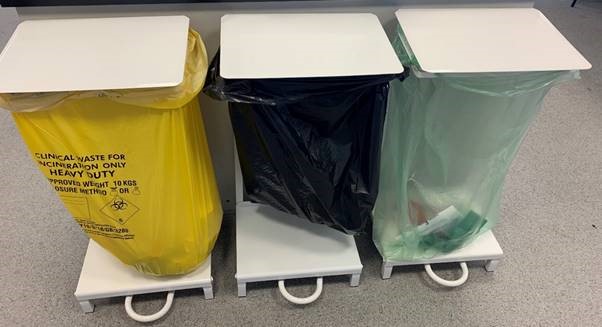Do you feel we use too much single-use plastic which ends up in landfill or is burnt?
The School of Biosciences is working on a solution to reduce plastic-waste. Our latest improvement is a new recycling scheme in the teaching laboratories.
Previously the majority of teaching lab waste was placed into general waste bins. However, a study earlier this year by Alex Moores and Emma Diamond (Estates Department) in our research labs showed that a threefold increase in recycling could be achieved. Therefore we decided to introduce a similar scheme for our teaching labs.
This is a student-led community project with BioSoc designing posters highlighting what can and cannot be recycled, and Julian Cook and his team installing new disposal stations located at the end of bench aisles.
The yellow biohazard bags are for anything that has been in contact with microorganisms or biological samples. The items which can be recycled once rinsed are placed in the green bags and include pipette tips, cuvettes, weighing boats, microfuge tubes, plastic Pasteur pipettes, falcon tubes, PCR tubes, syringes, filters and paper towels. Gloves, cling film and polystyrene cannot be recycled and are placed in the black bags.
We are carefully monitoring the amount of recycling and waste produced by the teaching lab this term. We will have data soon and hope to show a significant reduction in the amount of non-recyclable waste we are generating. A small but important step to help protect our environment.

